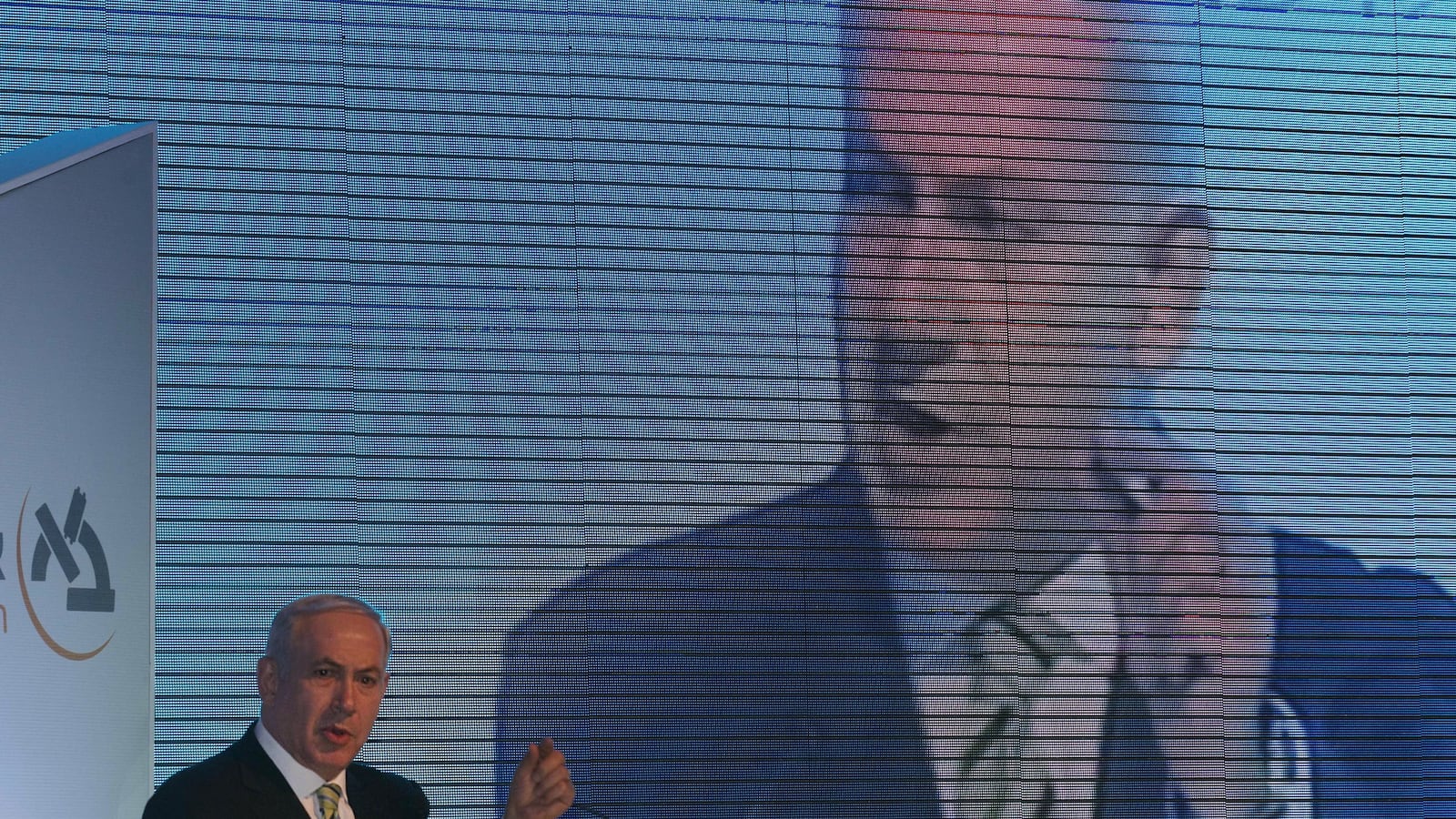Frequently, Palestinian leaders are charged with double-talk—advocating for peace in front of the international community while they push less tolerant views to their own constituents. It seems this charge, in fact, applies to the leadership on the other side of the conflict as well.
Since Netanyahu's famed 2009 Bar-Ilan speech in which he called for a “demilitarized Palestinian state,” mainstream two-staters have hoped Netanyahu wasn’t bluffing. But on Tuesday, when the Prime Minister’s booming voice came over the loudspeaker at the Christians United for Israel (CUFI) summit in Washington D.C., he was, well, ambiguous on the question of two-states.

Netanyahu addressed the summit following one of the most historic days of his premiership. First, Vice Prime Minister Shaul Mofaz pulled his Kadima party out of the governing coalition after only 70 days—leaving the Prime Minister politically exposed in an election year. And then, in a move that garnered much less attention in the West than the “Mofanyahu” break-up, a committee voted to upgrade an academic center in the West Bank settlement of Ariel to university status, further entrenching the civilian Israeli presence in the territories.
Netanyahu’s speech to CUFI was the world’s first glimpse of his response to these events—and it would not bode well for Palestinian statehood.
After reminding the audience of the Jewish people’s “4,000 year bond between the Jewish people and the Jewish land,” Netanyahu continued, “Israel wants peace with our Palestinian neighbors. We want them to have their own independent national life.”
“Independent national life,” not “state.” The Prime Minister made no mention of a Palestinian state, demilitarized or otherwise, in his speech to CUFI. MK Benny Begin, a minister in Netanyahu’s own Likud Party, has contended that the Bar-Ilan speech was only intended for foreign consumption (read: non Likudniks). So when speaking to his right-wing Christian base (read: Likudniks), Netanyahu used the diplomatically vague “independent national life” rather than the decisive formulation of “statehood” to describe the Palestinians’ future.
The timing of Netanyahu’s fudging on Palestinian statehood, in the context of Kadima’s coalition pullout, can be no coincidence. As The Camel’s Nose bloggers suggested, in order to shore up his credentials and re-solidify his right wing coalition after the moderate Kadima's withdrawal, Bibi will revert—if only to avid supporters like CUFI (or maybe just in Hebrew)—to a language that denies the Palestinians their right to a state. Yes, sometimes Palestinian leaders don’t say the same things to the same audiences; but sometimes Israeli leaders to do the same thing.





